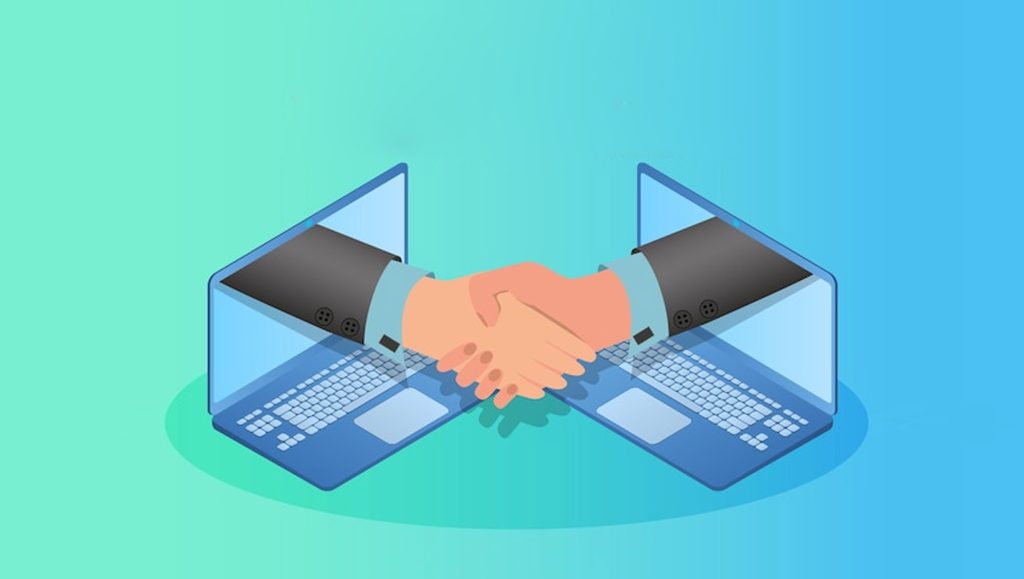Contactless payments became a popular way to make purchases in early 2020. One in five U.S. consumers became first-time users of this payment approach because it offered an additional measure of safety. Several years later, customers have grown accustomed to contactless payments and many prefer this hassle-free payment process that allows them to pay for goods and services quickly.
In this increasingly cashless world, QR codes have helped revolutionize the payment process thanks to their cost-effectiveness, ubiquity and ease of access — and they’re gaining in popularity. Global spending through QR code payments will reach over $3 trillion by 2025, up from $2.4 trillion in 2022. And over 60% of customers say they’d try a new business if it offered contactless payment options.
Instacart already uses this technology, recently announcing its Scan & Pay solution. Customers scan a QR code on a sign at the front of the store, scan items as they shop, check out and then display a QR code generated on their phones to confirm payment before exiting the store.
Consumers want frictionless experiences. QR codes allow businesses to connect easily, quickly and reliably with customers at every step of their purchase journey. These four QR code offerings, in particular, amplify the overall customer experience.
Read More: SalesTechStar Interview with Greg Peel, Vice President of Sales, North America at Aircall
1. Convenient, cashless payments
Most American adults own smartphones, making QR code payments universally accessible and convenient. Wherever and whenever a customer’s ready to make a purchase, they scan a QR code, the digital wallet connected to their bank account deducts the purchase, and a virtual receipt arrives via email or text. This process speeds customers through checkout more efficiently and quickly.
QR codes eliminate the need for cash, which means no fumbling through wallets for correct change — or panicking if a customer accidentally left their wallet at home. All they need is their smartphone to complete their purchase. Because QR codes eliminate potential barriers during a purchase journey, customers may find themselves tempted to make impulse purchases.
2. Secure transactions
QR codes allow for greater data security than traditional point of sale (POS) systems. A customer’s payment information stays on a private device. It’s not read by a merchant’s POS system, exposed to personnel, or stored on e-commerce companies’ servers. QR codes can also provide an end-to-end encryption feature that prevents unauthorized third parties from accessing protected payment information when it’s transmitted.
The safety of the transaction also relies on the customer’s discretion. Users help prevent QR code fraud when they:
- Don’t scan unreliable QR codes.
- Verify the URL after scanning a QR code.
- Read the fine print before authorizing a payment.
- Confirm the business name before approving a payment.
Ultimately, when using QR codes to make a purchase, customers remain in control of the transaction and can feel confident knowing their personal information and bank details are secure.
3. Personalized experiences
Customers want a hyper-personalized experience leading up to a purchase. Nearly 80% of consumers use their smartphones while shopping in-store for price comparisons and better recommendations. QR codes make businesses stand out by offering:
Fine-tuned offers and discounts: Over 85% of households hunt for coupons daily. Businesses can link discount codes to a QR code for a seamless shopping experience. Standard print campaigns require customers to remember to bring printed coupons with them. Because businesses display QR codes in-store, consumers are more likely to redeem QR code coupons, driving sales. Almost 90% of millennials say they would try a new business if it offered a coupon.
Loyalty programs: Customers love personalized loyalty programs. In fact, 80% of adults are enrolled in a loyalty program. But let’s face it — no one wants to hold up the checkout line because they can’t find their loyalty card. Instead of telling the cashier their phone number, customers simply scan a QR code to enter their information and earn rewards with every purchase.
Feedback forms: A feedback QR Code lets customers share valuable thoughts and opinions with a brand post-purchase by inviting them to scan the code and submit their review of their in-person experience. Businesses can respond to customer reviews (showing that they’re willing to listen to customers) and make changes to improve the purchase journey.
This personalization encourages brand loyalty and makes customers feel valued.
4. Valuable product insights
When considering a purchase, shoppers often want to know everything they can about the product to make a better, more informed decision and eliminate any traces of doubt. Over half of smartphone users search for product specifications online in lieu of speaking to a store associate.
The more product information businesses provide, the better the likelihood that businesses will convert hesitant customers and avoid buyer’s remorse. QR codes on product packaging can link the codes to knowledge base articles, videos and manuals offering in-depth information about key features, product history, measurements, nutritional info and more.
By 2025, the number of U.S. smartphone users scanning QR codes will increase to 99.5 million. To reach this large pool of potential customers, businesses must add the technology to their toolkits, especially as consumers lose patience with companies lacking solutions for delivering an easy, personalized and seamless experience.
Read More: The right RevOps architecture to thrive in 2023 and beyond
###



















